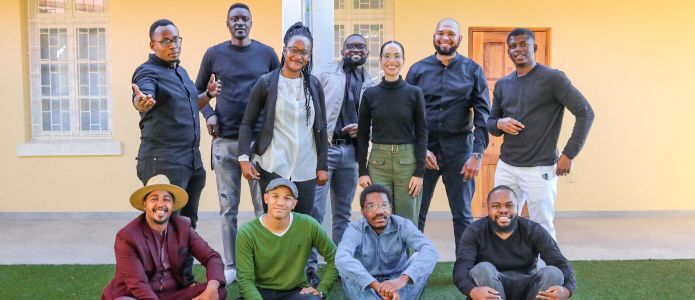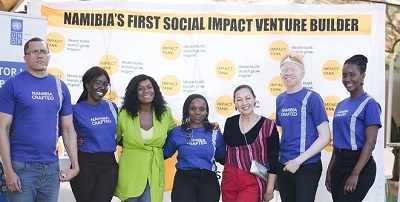
Creative Entrepreneurship Programme 2021 beneficiaries announced

The Goethe-Institut Namibia in collaboration with the Deutsche Gesellschaft für Internationale Zusammenarbeit (GIZ) has once again offered an opportunity for entrepreneurs in Namibia’s creative industry to identify business opportunities, develop business ideas and create economic growth.
Following the call for applications earlier this year and the submissions from more than 150 entrepreneurs, an independent jury selected the top ten businesses for the 2021 programme.
The CEP programme kicked off in early August, meaning beneficiaries have started attending regular workshops, mentoring sessions and peer-to-peer reviews.
Established in 2019, the CEP is a training programme for start-ups who are to receive incubation services under the GIZ Start-Up Namibia Programme, supported to the tune of N$570,000 by the Bundesregierung (German Government). GIZ Project Manager, Anna Vambe said this year’s applications were a surprise.
“From GIZ’s side we are extremely excited to support the Creative Entrepreneurship Initiative in its second round, with funding from the German Government. This year’s finalists make up a diverse and promising cohort, and we cannot wait to see them thrive in the creative industries in Namibia and beyond,” she said.
The CEP offers creative entrepreneurs access to information and practices concerning business development, entrepreneurial self-understanding, design thinking, marketing, customer research, branding, sales, legal principles, establishing partnerships, insurance, finances management, health and other aspects important for a business to grow.
The three-fold aim of this project is to encourage and inspire creative entrepreneurs in Namibia to identify lucrative business opportunities; develop their business ideas; and to implement a business plan. The long term aim of the CEP is to create economic growth in the creative industries.
“At the Goethe-Institut, we believe that while creativity is the engine of innovation, connection and collaboration are the fuel,” says Dennis Schroeder, Director of the Goethe-Institut Namibia. “During these months we do our best in providing all the necessary support for upcoming creative entrepreneurs – because we believe in unlocking unrealized value that can have a deep impact on markets, on Namibia, and on the individuals who have the courage and the drive to embark on this venture,” he said.
The CEP call for applications earlier this year targeted entrepreneurs in film and videography, digital product design, marketing and information and communication technology. One of the beneficiaries, John Keendjele of Jele Interactive that specializes in website development and app design is optimistic about being part of the CEP.
“I am hopefully looking to gain some valuable industry knowledge on how to become a successful entrepreneur within Namibia and Africa. Being in the CEP also provides the opportunity to network closely with other entrepreneurs trying to succeed in this ever challenging business landscape,” he said.
Kevin Sabati of KESA Media echoed the sentiments saying that apart from networking with other entrepreneurs, he hopes to scale up his business and improve on his business model. KESA Media specializes in creative solutions for events.
Beneficiaries will throughout the course of the CEP engage frequently with two facilitators, namely Chantal Claassen from Dololo Operations in Namibia and Lindiwe Sindani from Karani Leadership in South Africa. As Co-Founder of Dololo Operations, Claassen is passionate about entrepreneurship and focuses on the early-stages of entrepreneurship development in the direction of sustainable business.
Sindani has extensive experience in asset management, investment funding and public speaking. She is passionate about educating and motivating people to close the wide wealth gap in Africa through partnerships and strategies that address emotional, cultural and psychological causes of self-destructive spending.
Beneficiaries will at the end of the CEP present their business pitch for facilitators and a panel to evaluate their progress and compare it to their initial pitch delivered at the beginning of the CEP. The top performers will be rewarded accordingly.













































